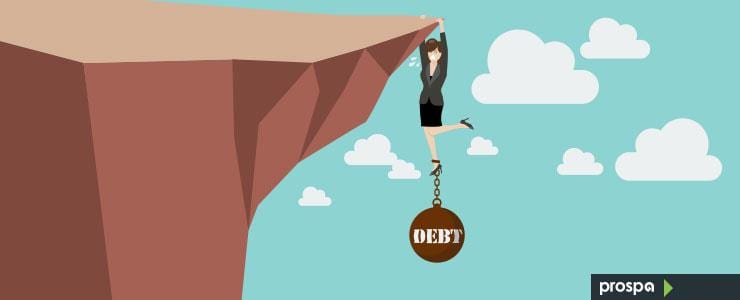The old adage of ‘you need money to make money’ rings particularly true when it comes to securing funding to start or grow your own business.
While growing a business often involves going into debt, it’s important to acknowledge there are two types of debt: good and bad. We explore the differences and look at how good debt can help you grow your business.
Good debt vs bad debt
Let’s start at the beginning. Debt, simply defined, is a liability or obligation owed to another person or party. In this case, funds borrowed for your business. Debt can be either ‘good’ or ‘bad’. How it is classified depends largely on the circumstances in which funds are borrowed, how they are put to use, and the financial position of the borrower.
What is good debt?
Good debt is often necessary for the establishment or future growth of a business. Debt is considered good when invested in purchases that benefit the business. These investments might help by generating income, reducing overheads or growing the overall asset value of the business. Good debt can be tax-deductible and should be financially sustainable – your business cashflow must be able to make the loan repayments!
Good debtenables businesses to become bigger, stronger and more efficient. For example, if you take out a loan to purchase a new piece of equipment for your construction business, which will expand your offering and increase your revenue, it would be considered good debt.
What is bad debt?
Bad debt, on the other hand, is the use of funds for reasons that do not bring any benefit or wealth to the business. They are often purchases that are unnecessary or fall in value, for example, upgrading an asset such as a car that won’t generate extra income for the business. Bad debt purchases don’t help the business earn and are unable to generate growth in the business to cover the cost of repaying the debt. These purchases are generally not tax deductible.
The conditions of a loan and a business’s inability to meet them can also make a debt a bad one. For example, if a loan has a high-interest rate and the business struggles to meet the minimum payments required. Unsustainable debt is bad debt and detrimental to a business and its financial health. For example, borrowing money to pay credit card debt is almost always bad debt as it does not contribute to the growth of the business in any way.
Women and good debt
According to a 2015, women make up over a third of all Australian business operators (34 per cent) and this number is steadily growing with number of female business operators over the past two decades increasing by 46 per cent increase (compared to men at 27 per cent). For women looking to expand their own venture, good debt in the form of a loan, such as those offered by Prospa, may be the way to do it.
Suzanne Flanders used a small business loan to grow her Perth-based day spa, Simply Beautiful Hair, in August 2016. At the time Suzanne lacked the cash flow to invest in much needed changes. After evaluating her external finance options, and after hearing about an offer from Prospa-powered Reckon Loans, she shunned the big banks and applied for a small business loan.
“It was hassle free, they only considered my main business account, not my personal financial situation, and I did not have to provide any other paperwork,” says Suzanne.
The funds were used to expand the rooms in the salon, invest in marketing and bring in a new brand, Skinstitute. An example of good debt, Suzanne’s decision has “already been very successful” and has helped to improve her business offering significantly.
Similarly, when Nyoli Scobie of Truly Tea was forced to miss out on a huge opportunity because the big banks wouldn’t fund her, she turned to Prospa for a small business loan that would allow her to explore new business opportunities.
“I was asked to supply airlines and tender for the Commonwealth Games, but I couldn’t do any of it without funding – because I’d have to supply product up front, and it would’ve sent me broke,” says Nyoli.
But when Nyoli was offered the chance to supply tea to the entire Opera House, she knew who to call. “I instantly said yes, then got off the phone and thought, now what?” she laughs. “That’s when a contact of mine told me about Prospa and I gave them a call.”
The quick approval time meant that Nyoli had the funds she needed in 24 hours. This kind of good debt has changed her business, enabling her to win an export contract to supply tea to Korea, with other international opportunities on the radar. “Now I don’t need to miss opportunities anymore. How amazing is that?”
If you’re looking for a loan to grow your own business, talk to Prospa about how we could help.








